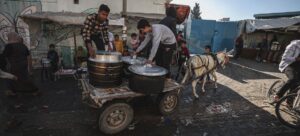
Mehmed Spaho (13 March 1883 – 29 June 1939) was a Bosniak politician and leader of the Yugoslav Muslim Organization. He was the first Bosnian Muslim politician in the Kingdom of Serbs, Croats and Slovenes. Spaho was described as the “undisputed leader of the Bosniaks between the two world wars” by the newspaper Oslobođenje in 2013. He died under mysterious circumstances in a Belgrade hotel.
Spaho was born in Sarajevo, at the time part of Austria-Hungary, into a coppersmith family. His father Hasan was an expert of the Sharia law, and before the Austrian-Hungarian occupation, he was a judge in the Ottoman cities of Jajce, Sofia, Damascus and Cairo. His mother was Fatima (née Bičakčić). Spaho had three sisters, Behija, Aiša and Habiba, and two brothers, Fehim and Mustafa.
Spaho attended elementary school in Sarajevo, where he was a good student. In 1906 graduated from the Faculty of Law at the University of Vienna. At the end of 1907 he passed the doctoral exam and on 7 February 1908, he was officially named dr. iur. In Vienna, Spaho was a member of an organization called “Zvijezda” (The Star), an organization that gathered Muslim students. This organization promoted a closer cooperation between Serbs and Bosnian Muslims. Pro-Croat oriented Hakija Hadžić claimed that he challenged Spaho to a duel, while both of them were in Vienna, but Spaho refused to appear.
When he returned from Vienna in 1906, Spaho worked as a court clerk until 1908. In 1910 he became a lawyer clerk for Josef Fischer. When the Commercial Chamber was established in Sarajevo in 1910, on its session held on 11 November 1910, Spaho was elected to be its secretary with an annual payment of 6,000 kronas; he started to work on 1 January 1911. During that time, he had an ambition to enter the Diet of Bosnia, along with other group of Muslims educated outside Bosnia and Herzegovina. His group eventually failed to enter the Diet. In 1914, Spaho was elected to the Sarajevo City Council, after his political associate and friend, Esad Kulović, stepped down. By this, Spaho dealt with both, economics and politics.
On the evening of 28 June 1939, Spaho departed Sarajevo for Belgrade by train, after receiving an invite from Prince Paul of Yugoslavia. With him was his personal secretary Mehmed Hadžihasanović, son of prominent Sarajevo dealer and then-senator Uzeir-aga Hadžihasanović. They arrived early the next morning at a train station, greeted by Džafer Kulenović, among others. Spaho arrived by car to the “Srpski kralj” (The Serbian King) hotel, where he stayed when in Belgrade, and sat down at a desk to inspect some letters which had built up in his absence. Around that time, the hotel room received a phone call, an invite to take part in a “police celebration”. Spaho declined to attend, saying he was overloaded with work. He took something to write and, at that moment suddenly grabbed his chest and fell off his chair. Hadžihasanović rushed over to his side, but it was too late, Spaho was deceased. His funeral on 30 June 1939 was attended by an estimated crowd of 30,000 mourners.
Several versions of his death have circulated since that morning in 1939. One says that, while preparing an outfit for Spaho, Hadžihasanović heard a shout coming from the bathroom, rushing over, only to find him dead by the faucet. Another claims that he fell onto a bed on his way to the bathroom, others state that he died in the bathroom. Spaho’s daughter Emina specified in March 2013 that he was served poisoned coffee upon leaving the bathroom, dropping almost immediately after his first sip. On 5 July 1939, Mehmed Sulejmanpašić, a reporter for the Turkish newspaper Cumhuriyet published a story claiming that Spaho had been poisoned and that his death was not a natural one, arguing that the attitude of Belgrade police chief Dragi Jovanović, who “spent the entire time in the room with the Spaho’s body, chasing out anyone who lingered for more than half a minute,” was suspicious.
On the occasion of the 130th anniversary of his birth in 2013, his 91-year-old daughter Emina Kadić spoke to the newspaper Oslobođenje about her belief that her father had been poisoned when she was 17. She reiterated her theory in 2014, on the occasion of the 75th anniversary of her father’s death, stating that Prince Paul was the one who ordered her father’s assassination.
Kadić added that the Prince saw her father as a nuisance due to his fight for Muslim rights in the Kingdom of Yugoslavia, and for being against the Cvetković–Maček Agreement, believing it to be an attempt by Serbs and Croats to divide Bosnia, and having it become part of Serbia and Croatia, disappearing from existence. She claims her father’s disapproval of the Cvetković–Maček Agreement and the division of Bosnia amongst the Serbs and Croats as the main motive behind the assassination on the Serb holiday Vidovdan. Kadić said that her brother Zijah went back to Belgrade years later and spoke to the waiter who served their father the coffee that morning. She said that the waiter, named Dragan Vujić, admitted that he personally poured the poison into the cup of coffee. She said “Why this was never investigated is another story.” Kadić described her father as a kind man, who, although spending a lot of time working in Belgrade, would relax in his garden upon returning to Sarajevo.
Less than two months after Spaho’s death, the Cvetković–Maček Agreement was signed, temporarily dividing Bosnia and Herzegovina until World War II and the creation of Communist Yugoslavia.
















